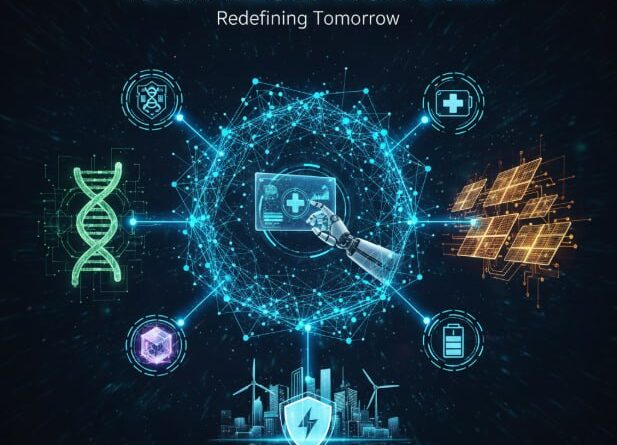Top Tech Research Findings of 2025
In 2025, the pace of technological progress is accelerating faster than at any point in history. Artificial intelligence, robotics, biotechnology, and quantum computing are moving from theory to practice, reshaping industries and daily life. Global research centers, universities, and private companies are investing billions into projects that could redefine the next decade.
This article highlights the most important tech research findings of 2025, explaining what they mean for businesses, governments, and everyday users.
Artificial Intelligence Beyond Prediction
AI research in 2025 shows a shift from predictive analytics to adaptive intelligence.
- New models not only provide answers but also learn from real-world feedback.
- AI tools now function as decision-support systems in finance, law, and healthcare.
- Studies reveal AI can reduce administrative workload in hospitals by up to 40%, improving patient care.
This signals a future where AI is not just assisting, but actively shaping decision-making.
Breakthroughs in Medical Technology
Healthcare remains one of the biggest beneficiaries of research. Key developments include:
- AI-assisted diagnostics that outperform traditional screenings.
- Gene-editing research advancing treatments for rare genetic conditions.
- Wearable biosensors capable of continuously monitoring blood pressure, glucose, and oxygen levels.
These findings point to a healthcare model that is more personalized, preventive, and data-driven.
Quantum Computing Reaches Early Milestones
Quantum computing has long been considered futuristic, but 2025 marks the first wave of practical applications. Researchers are testing quantum algorithms for:
- Drug discovery, dramatically reducing testing times.
- Climate modeling, enabling more precise simulations of global warming.
- Financial risk analysis, providing insights beyond classical computing’s limits.
Though still experimental, the research suggests quantum computing could enter mainstream industries within the next decade.
Robotics and Human Collaboration
Recent studies highlight a transition from robots replacing humans to robots working alongside humans.
- Cobots (collaborative robots) are being deployed in factories to support workers in heavy or repetitive tasks.
- Service robots assist in healthcare, hospitality, and logistics.
- Research indicates that cobot-human teams are up to 25% more efficient than humans or robots alone.
This reflects a new era of shared intelligence and labor.
Renewable Energy and Climate Tech
Research in 2025 shows strong progress in sustainable technologies:
- AI-optimized solar panels that adapt to changing weather conditions.
- Next-generation batteries with higher efficiency and lower costs.
- Carbon capture systems capable of removing CO₂ directly from the air.
The findings suggest technology is becoming a central force in addressing climate change.
Ethical and Regulatory Research
As technology advances, researchers are increasingly focused on ethics. Studies emphasize:
- The urgent need for transparent AI models to prevent bias.
- Regulation of biotechnology and genetic editing.
- Global collaboration on cybersecurity standards.
Without clear governance, researchers warn that innovation could outpace safety.
Education and Workforce Transformation
Educational researchers are exploring how technology changes learning and careers.
- AI tutors provide personalized lessons at scale.
- Virtual and augmented reality create immersive classrooms.
- Workforce studies predict 40% of workers will need new digital skills by 2030.
These findings show technology is not only creating new industries but also demanding continuous reskilling.
Consumer Technology Research
On the consumer side, 2025 research points to everyday changes:
- Smarter home devices with improved energy efficiency.
- Advanced wearables that track both physical and mental health.
- The rise of mixed-reality platforms, blending physical and digital experiences.
Research suggests these technologies will become as standard as smartphones within the next five years.
Conclusion: Research That Redefines Tomorrow
The findings of 2025 confirm that technology is no longer developing in isolation it is interconnected, global, and accelerating. From AI to quantum computing, from healthcare to climate solutions, research shows both enormous opportunities and significant challenges.
For individuals and businesses, staying informed is no longer optional. The breakthroughs of today are the foundations of tomorrow’s economy, healthcare, and daily life.
